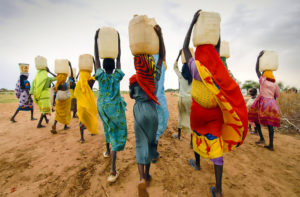
Implementation of the Priority Actions in Climate Change Sector
The Project’s overall objective is to achieve alignment of the North Macedonia’s legislation with the EU climate action legislation, and creation of an enabling environment for the successful implementation of the priority mitigation actions developed under the Long-term Strategy on Climate Action. The project’s specific objective is to

Supporting the Implementation of the Regional Waste Management Systems
The project aims are to support the North Macedonia in establishment of the regional waste management structure in the East and North-East Regions. To achieve its aims, the Project will be implemented through the following main activities: • Development and implementation of Regional Waste Management Public Awareness Program

Strengthening the Internal Market
Project is comprised of six components, as follows: Component 1: Improving the strategic, legislative and institutional framework in area of Free Movement of Goods Component 2: Improving the strategic, legislative and institutional framework in area of Free Movement of Services. Component 3: Improving the legislative alignment with the

Technical Assistance to Support the Implementation of the Rural Development Sector Development Programme (Phase 1 + 2)
After the positive vote of the Turkish Cypriot community in the 2004 referendum to reunite the island, the European Council decided to end the isolation of the Turkish Cypriot Community and facilitate its integration with the EU. Therefore, the purpose of the project was to improve socio-economic conditions

EU Support for the Competitiveness of Kosovo’s ICT Sector
This initiative’s overall objective is to enhance the competitiveness of Kosovo’s digital and traditional businesses by supporting the growth of Kosovo’s Information and Communication Technology (ICT) sector, paving the way for growth and new job creation. The project aims to bridge the digital and business skills gap in

Technical Assistance Support to the Women’s Breakthrough Project
Over the next century, half the world’s population growth is expected to take place in Africa. It is recognized that one of the continent’s most significant development challenges will be creating enough quality jobs and to employ this population growth. Gender equality, particularly the inclusion and empowerment of

